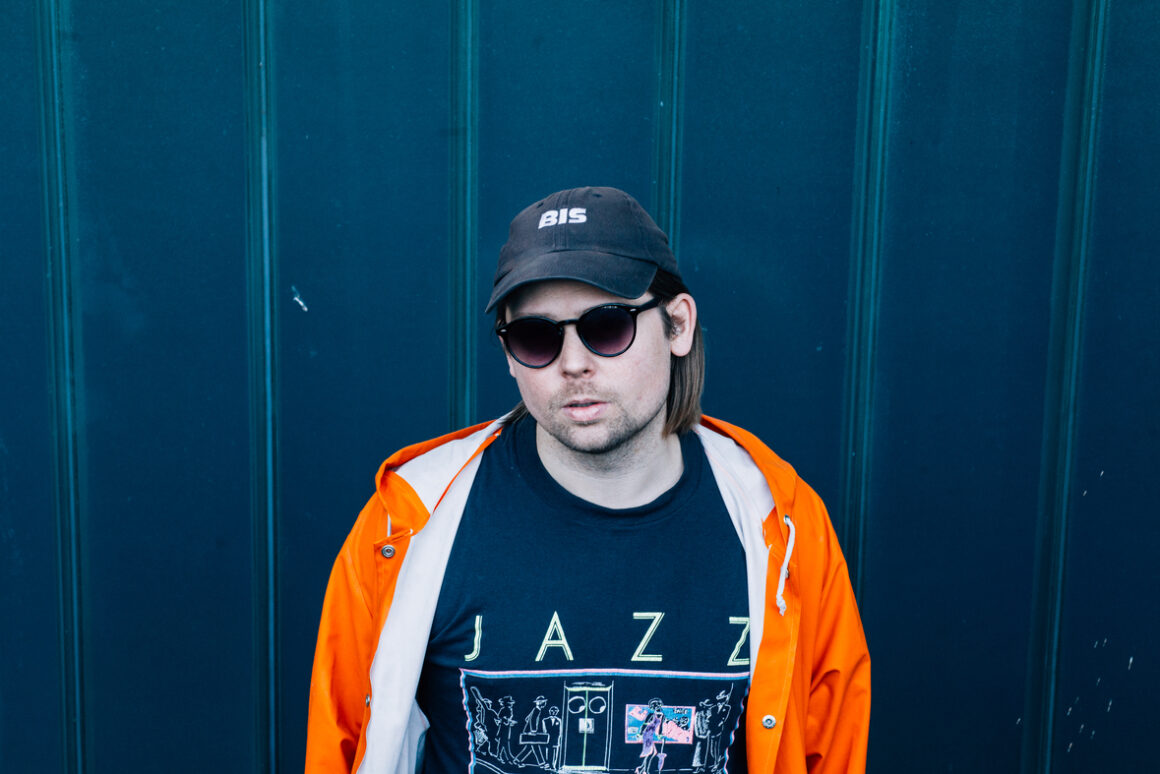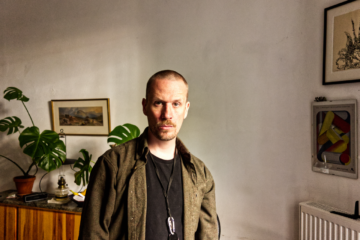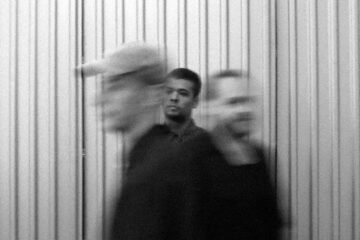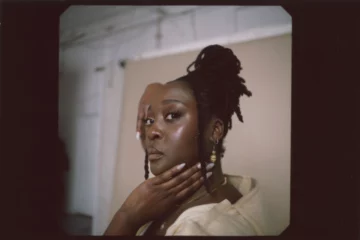»If you want to talk to Otis, you have to talk to Petter—the two of them are like twins,« writes his manager: Otis Sandsjö and Petter Eldh. We’ve already spotlighted one of the jazz musicians here, the other is half an hour late for the call. »But I still have 21 per cent battery,« says Sandsjö, grinning as if someone had just asked him about his film career. »Then I have to go to kindergarten.«
Where he has a child, of course, not a gig. But sometimes things do sound like the free-jazz madness that brought him to Berlin a decade ago. At the time, the Gothenburg-born musician was in his early 20s and as worldly as you can be when you don’t have a gig. After all, Sandsjö had done it all before. He’d studied, travelled the Balkans and sang in a reggae band. Oh yes, and he was also an actor at the age of ten–don’t ask.
Soon music was more important than Hollywood anyway. His parents (»she an actor, he in advertising with a punk past«) were way too old to put up with him learning the drums. So, the clarinet was a compromise. The saxophone came later. Sandsjö had mastered circular breathing before others had even reached puberty. Then came a break to study in Copenhagen. Sandsjö: »There was only classical jazz there, but I made my first connections to Berlin.«
Ja-Sagen in Berlin
Sandsjö started to »take off« for a few days every now and then – playing gigs, partying, taking life with him, as he says. At some point, the stays turned into weeks, a month, the whole summer. «Eventually, a guy called Petter asked me if I wanted to play on his record,« says Sandsjö. »Also, someone I knew moved out of an apartment. I just took the opportunities that came my way and didn’t say no.«
»The city is a strange place when you get older, because you know that you originally came to live out your own dreams. And suddenly you realise that Berlin is just another city with German bureaucracy.«
Otis Sandsjö
The lease was signed, the decision was clear: to finally become part of an »international community«, says Sandsjö. »During my visits to Berlin, I had always noticed the network that exists here. People come from all over the world, there’s improvisation everywhere, everything is DIY, and most people even book their own tours so they can just play crazy music. The energy was exhilarating.«
A few years have passed since then. In addition to his musical life on tour and in bands like Y-Otis, Speak Low and Koma Saxo, Sandsjö leads a family life in Berlin. The city still has a mystical aura for him to this day. After all, Berlin is more of a dream than anything else, says Sandsjö. »That’s probably because people here always have dreams and create an energy that you can’t find anywhere else.«
Dream, wake up, reality
The further back you go into the 1990s, the more of this energy you can discover. At least that’s what those who were already raving in Berlin at the time told him. »The fact that this dream is becoming increasingly rare makes me sad, although I also understand it: The city is a strange place when you get older, because you know that you originally came to live out your own dreams. And suddenly you realise that Berlin is just another city with German bureaucracy.«
Related reviews
In the early 2010s, the dream was still real for Sandsjö. He moved to Berlin because of the improv scene. But just like his pal Petter, he soon broke away from it. He did so because many people in the scene wanted to continue with something that was based purely on the past, says Sandsjö. »That is also dangerous, because the idea of a legacy is inscribed in this process of creating, and this can also be conservative.«
What Sandsjö means becomes clear when you listen to the albums by his band Y-Otis. It’s still jazz, but it’s not stuck in a traditional jazz context. It’s been given a new twist by some funny music journalists. It also appeals to people who don’t really listen to jazz. There are fewer and fewer of them, which makes Sandsjö happy. »It keeps Berlin dreamy,« he says, and he means it: »Seven per cent, I have to go now.«











